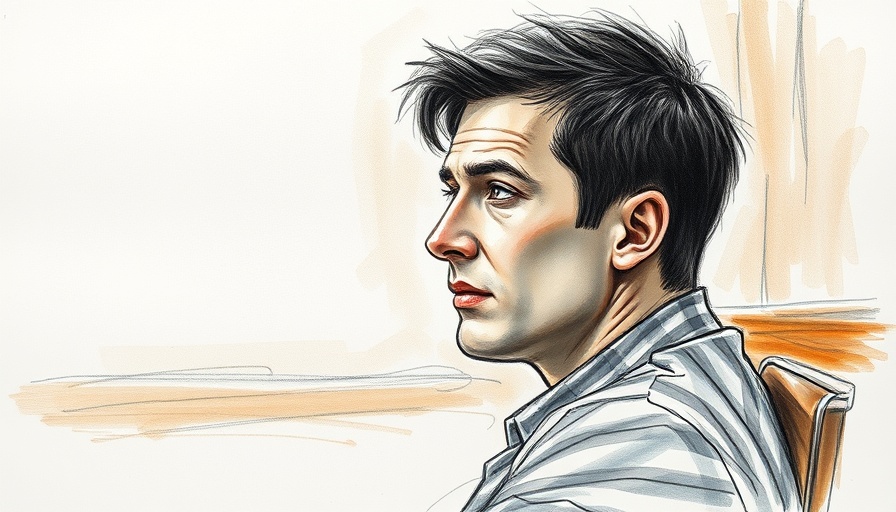
A Legacy of Violence: The Menendez Case Revisited
The Menendez brothers, Lyle and Erik, have been at the center of intense media scrutiny and public fascination for decades. Their conviction for the 1989 shotgun murders of their wealthy parents, Jose and Mary Louise Menendez, remains one of the most notable and tragic tales in American criminal history. On April 28, 2023, Lyle Menendez was denied parole after spending 35 years in prison, a decision that reignites debates about the complexity behind their actions, mental health issues, and the justice system.
Gripping Documentary and TV Coverage
The Menendez case has been portrayed in numerous documentaries, movies, and TV shows. A recent documentary offers a fresh perspective, showing not just the heinous crime but delving into the childhood trauma the brothers suffered. Reports emerge that both boys endured abusive behavior from their parents, prompting defenders to argue that their actions could be viewed through the lens of their troubled upbringing. This view has not swayed judges, as both brothers remain confined despite ongoing public interest and calls from supporters advocating for justice reform.
Understanding the Pain and Struggle
Many in the psychology community highlight the concept of 'Intergenerational Trauma,' where the trauma experienced by one generation is passed down to another. For the Menendez brothers, it has become a narrative of survival rather than maliciousness. Critics argue that the legal system has continued to overlook the impact of their upbringing. How much does a foundation of emotional and physical abuse mitigate responsibility?
Parole Denials and Their Implications
Parole denials can signal a lack of support for rehabilitation within the American prison system. As Lyle Menendez faced yet another setback, experts suggest the legal system is rife with inconsistencies. The parole board's rationale often becomes a source of contention—what constitutes adequate evidence for rehabilitation? Lyle maintains he has transformed during his time in prison, yet this transformation fails to satisfy those tasked with protecting public safety.
The Public's Reaction: Mixed Feelings
Public opinion around Lyle Menendez's potential release is polarized. Many contend that he deserves a second chance, advocating for empathy and understanding, while others believe he should remain incarcerated due to the brutality of the crime. This contradiction reflects broader societal debates over justice, rehabilitation, and punishment. Should murderers ever be forgiven, especially under such dire circumstances?
Future Considerations: What Lies Ahead?
For Lyle and Erik Menendez, the future remains uncertain. With ongoing discussions regarding their release, evolving public opinion may ultimately change how their case is perceived, suggesting a possible shift in the conversation about mental health, accountability, and the effectiveness of the prison system. As society wrestles with these fundamental questions, particulars of individual cases like the Menendez brothers hang in delicate balance. Will a renewed focus on their history lead to a reconsideration of their sentence?
Concluding Thoughts
The Menendez brothers continue to encapsulate a narrative fraught with tragedy, pain, and complex ethical dilemmas. Their story holds a mirror to society, showcasing the critical need for compassion and reform in a justice system that often lacks both. Understanding each facet of their journey may help shape a more empathic and equitable future.
 Add Row
Add Row  Add
Add 



Write A Comment